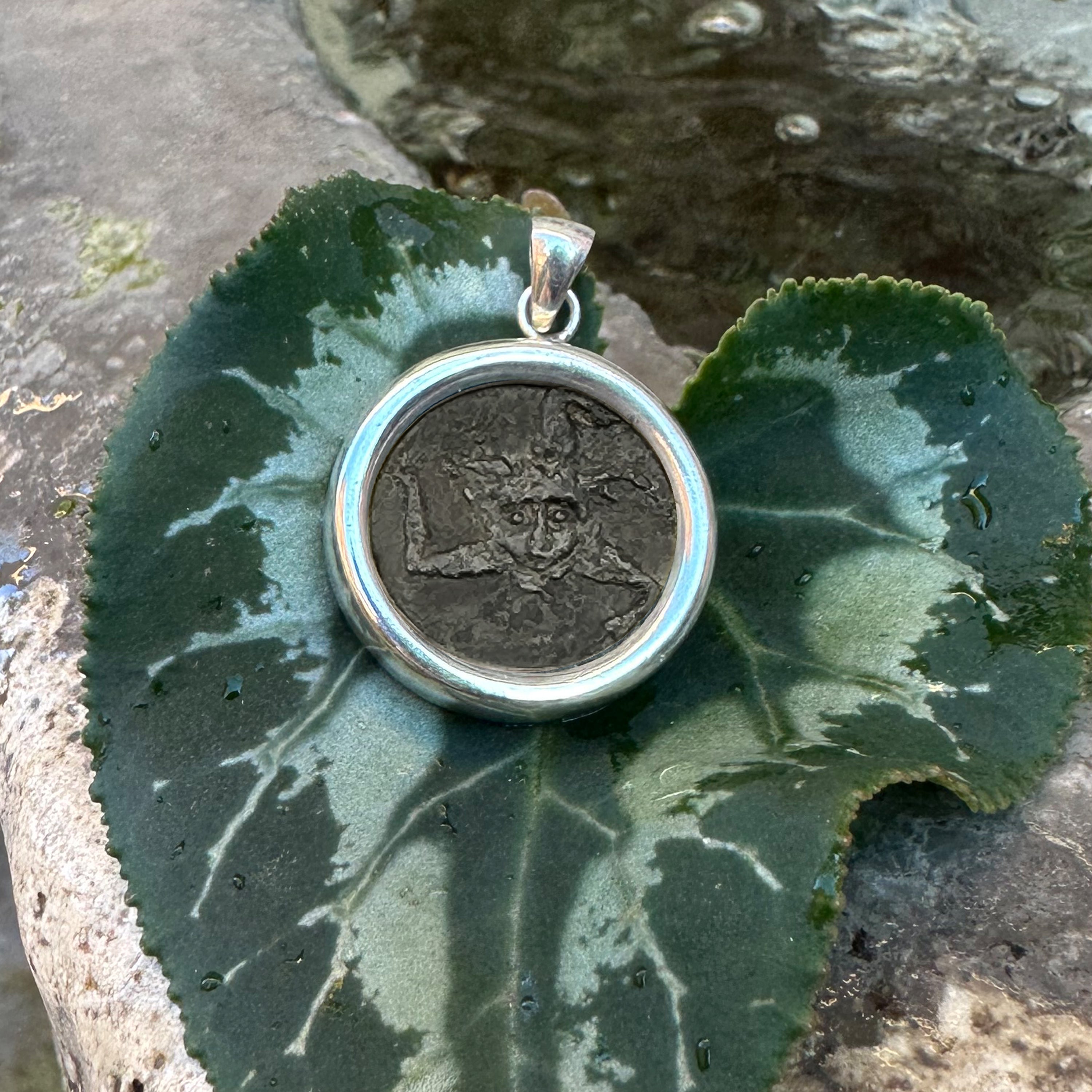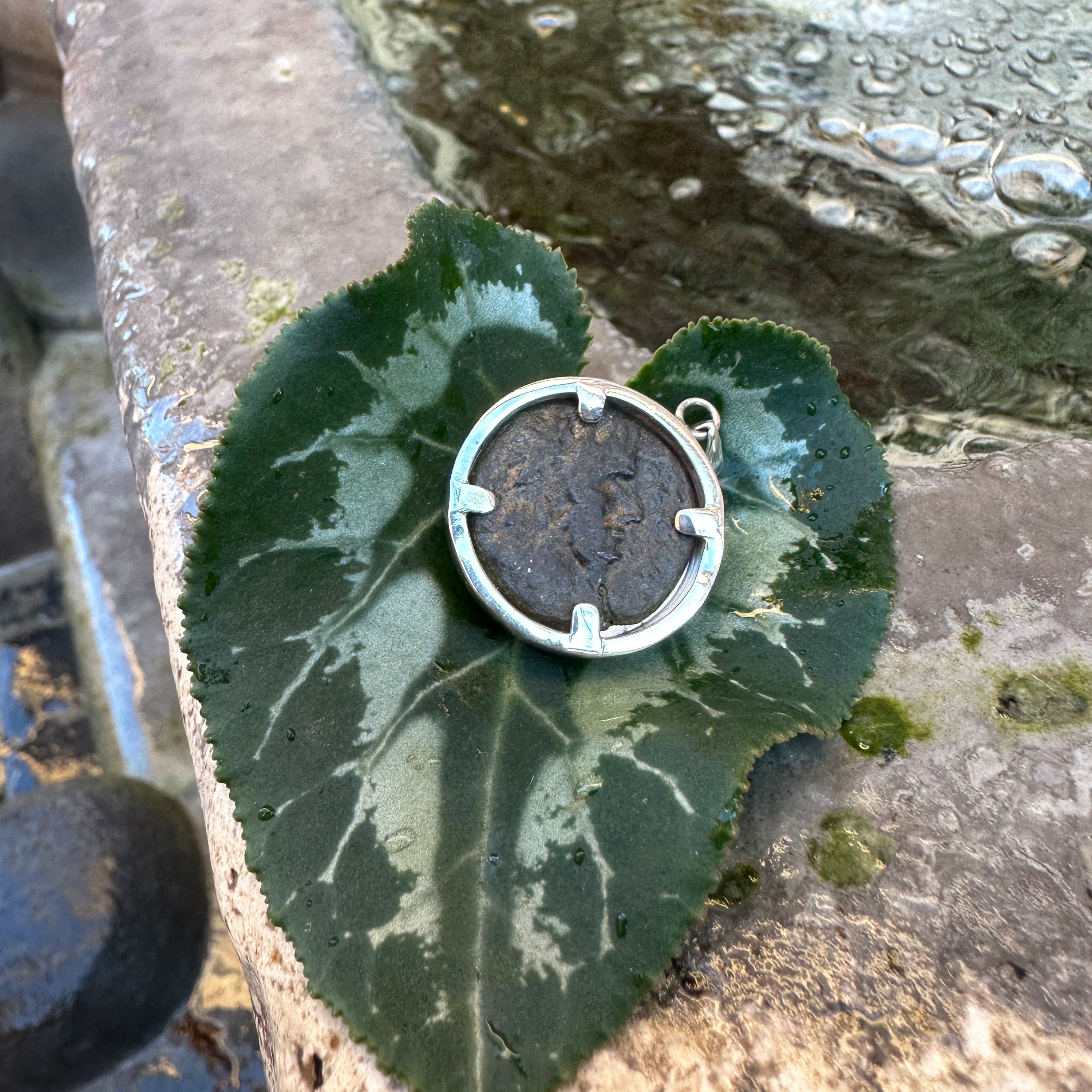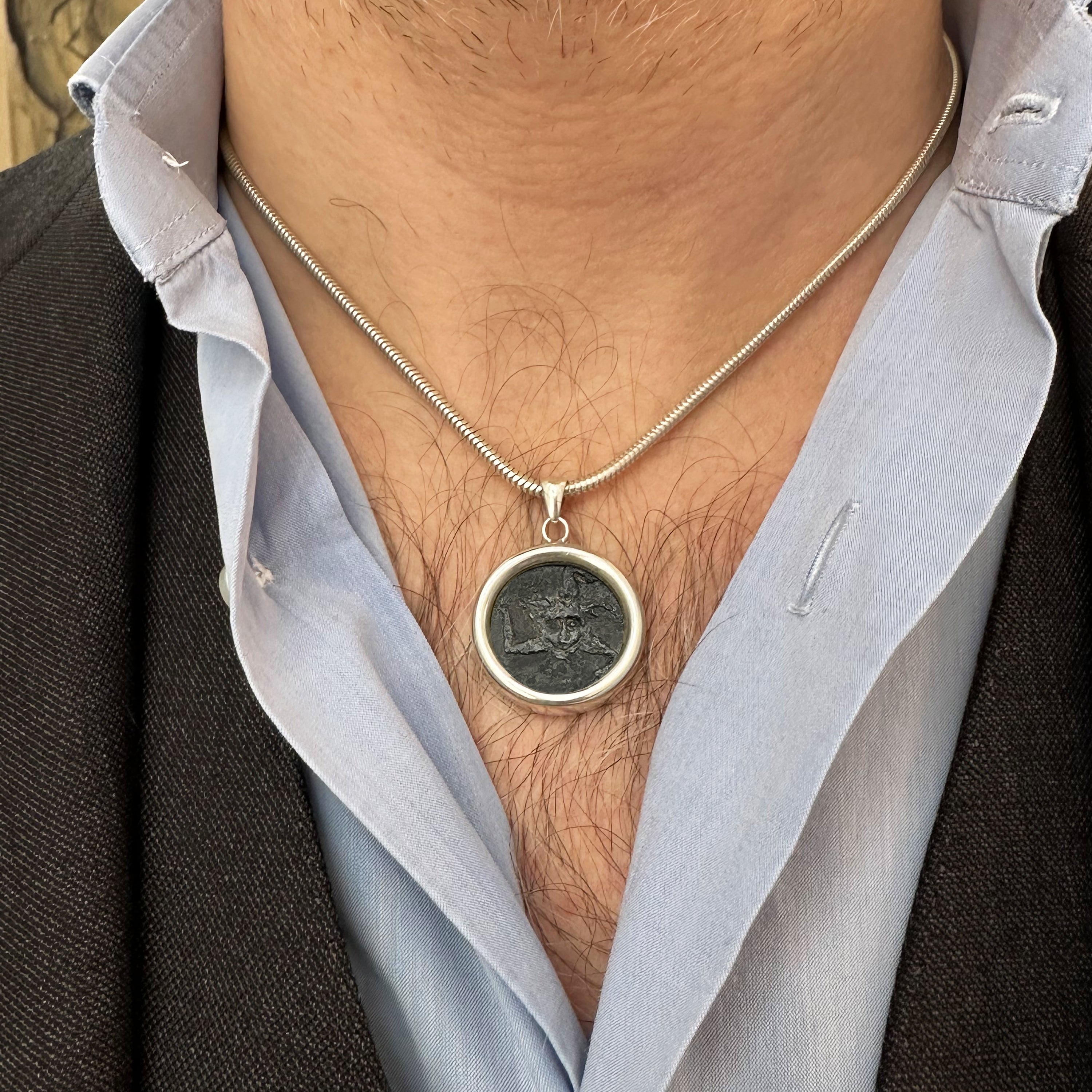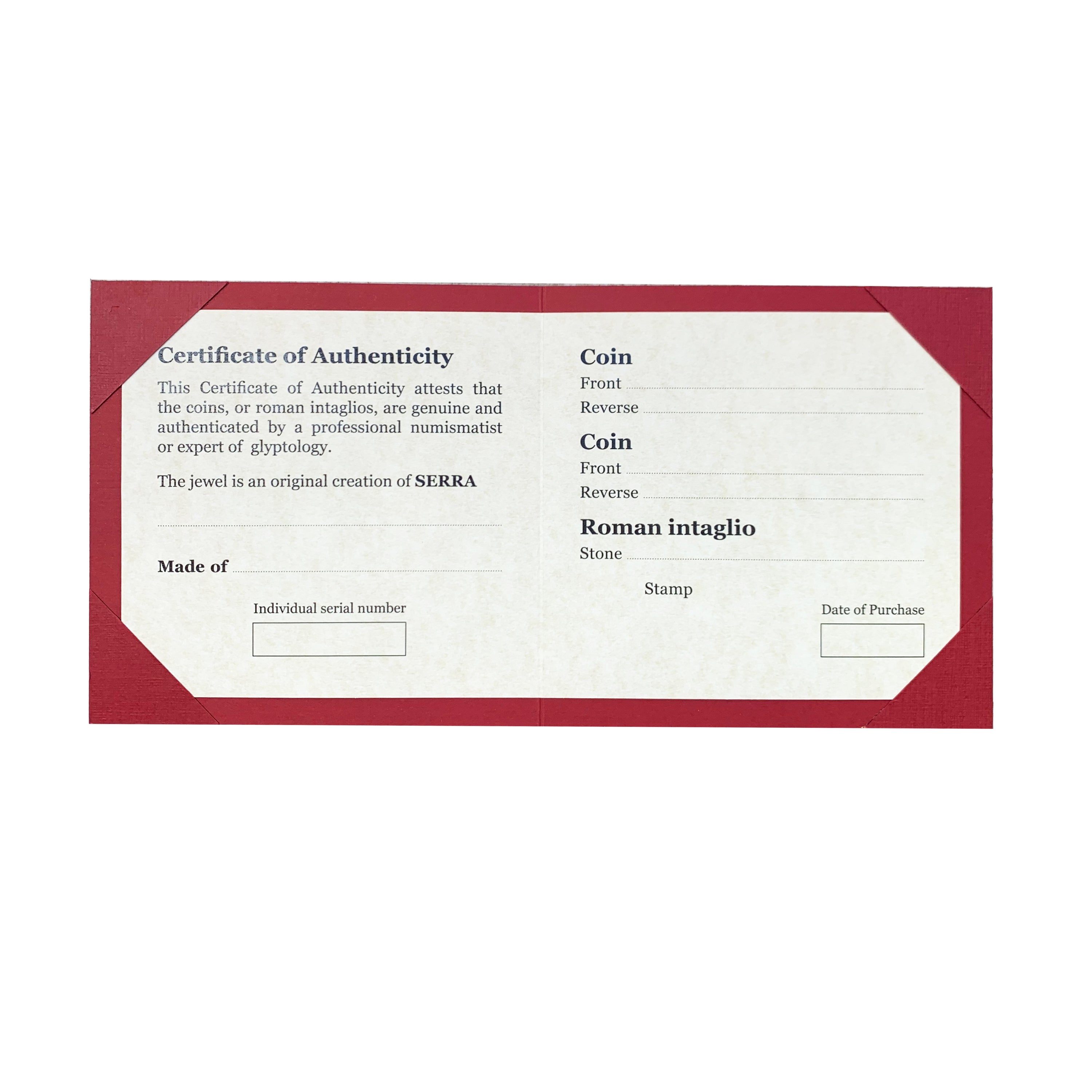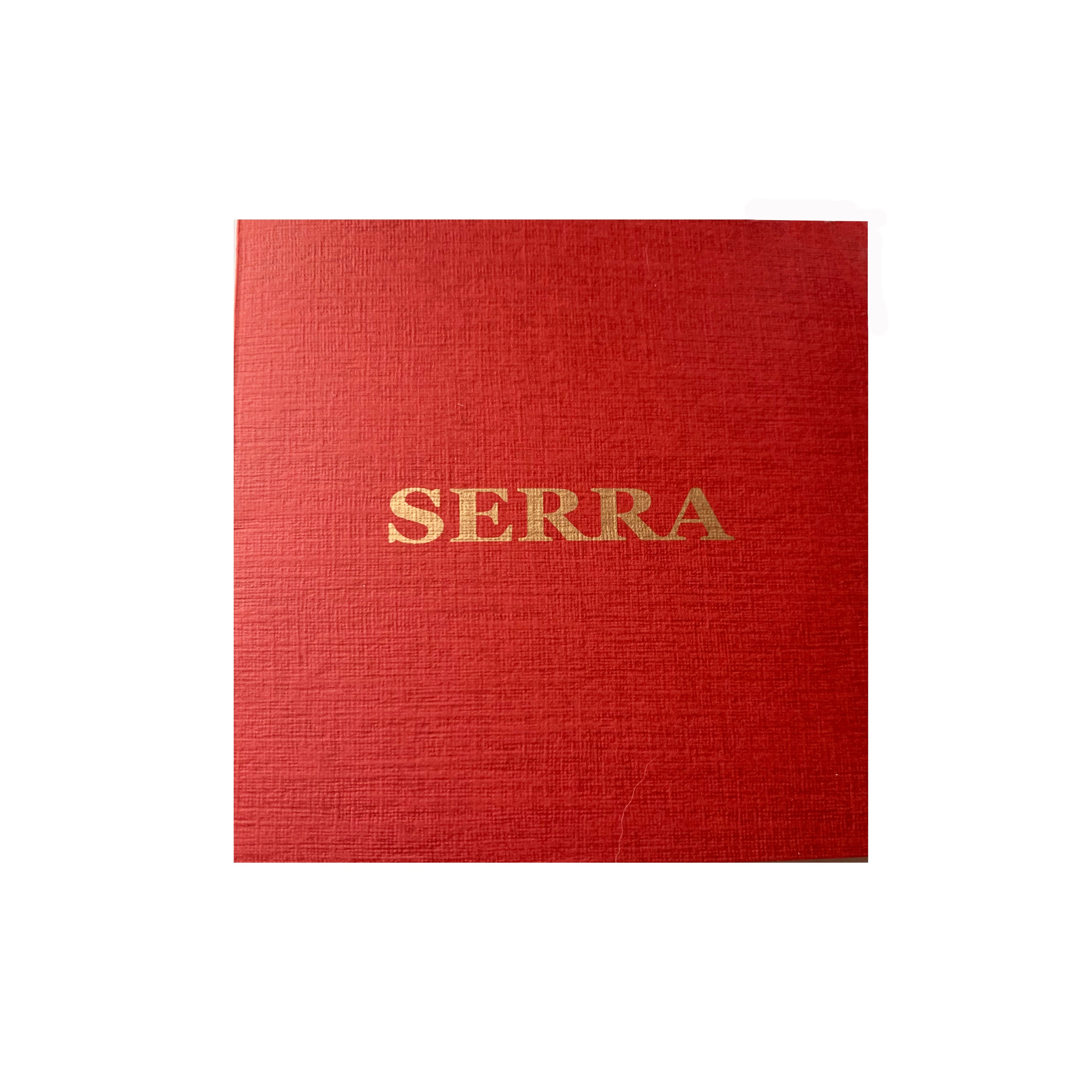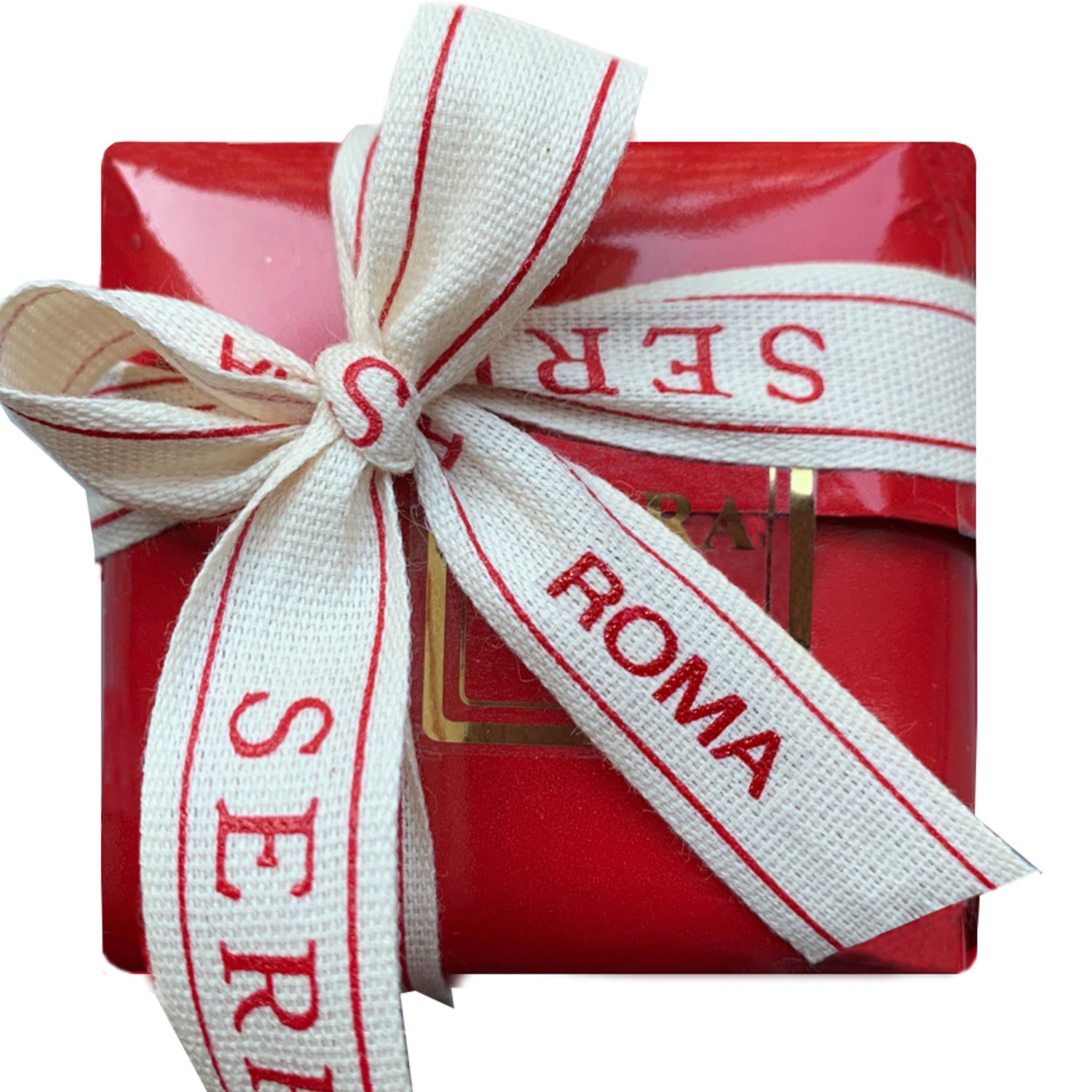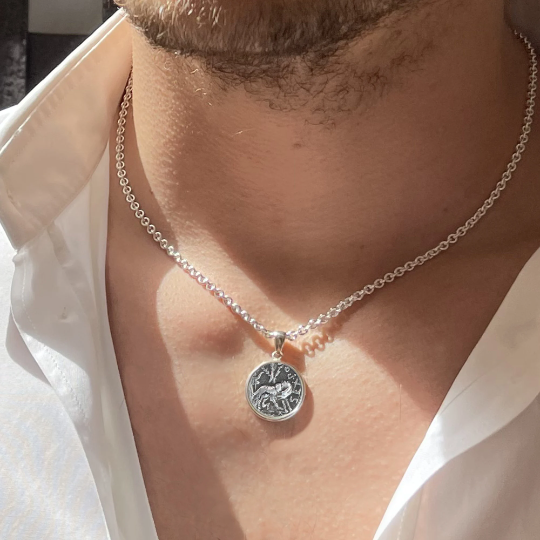MEDUSA TRISKELION Genuine Ancient Roman coin 3rd century BC Pendant
This sterling silver pendant holds within it an authentic coin dating back to the 3rd century BC, originating from Panormus, modern-day Palermo. The coin features a triskelion, a symbol consisting of three legs radiating from a central point, and on the reverse side, the head of Hercules
The triskelion, prevalent in Greek and Roman coinage, is believed to have origins in the East and symbolizes various concepts such as the Moon, the Sun, or motion itself. In Sicily, it first appeared on coins minted during the reign of Agathocles around 317-289 BC and eventually became synonymous with the island. This particular coin showcases the head of Medusa at the center of the triskelion, with ears of wheat positioned between her legs.
Initially, the triskele represented the head of the Gorgon, Medusa, characterized by her hair formed of snakes, from which three bent legs emerged. In mythology, Medusa was one of the three daughters of Phorcys and Ceto: Medusa (the foremost Gorgon), Stheno (the strong), and Euryale (the wide-ranging).
Another interpretation of the triskele depicts a female figure, possibly a deity, sometimes portrayed with wings to symbolize the perpetual passage of time, encircled by snakes representing wisdom. Over time, ears of wheat were incorporated into the depiction, symbolizing the fertility of Sicily's soil. The Romans replaced the snakes with ears of wheat, signifying the island's role as Rome's "granary."
The term "Trinakìa" or "Trinacrìa," derived from the Greek words "trinacrios" meaning "three headlands," was used by the Greeks to refer to Sicily. This name evolved into the Latin "triquetra," meaning "three vertices." The triskelion later became an emblem of Trinacria, remaining a synonymous representation of Sicily.
Our jewelry store, Serra Roma, proudly presents an exquisite collection that beautifully honors the ancient traditions of Greek and Roman civilizations. Each piece in our collection, including authentic ancient Roman and Greek coins and intaglios, is accompanied by a certificate of authenticity, providing proof of its historical significance and origin.

